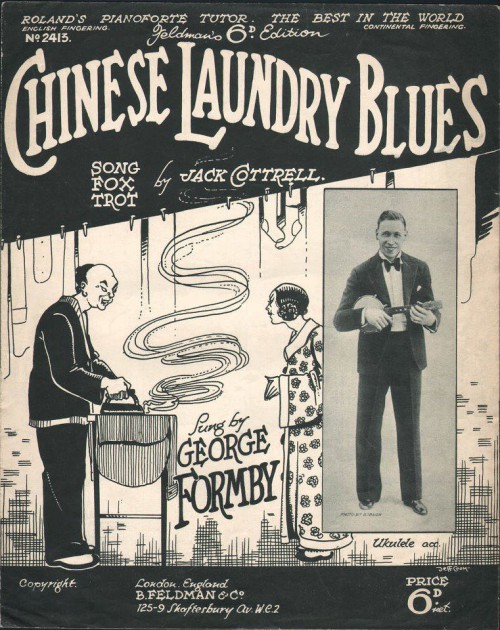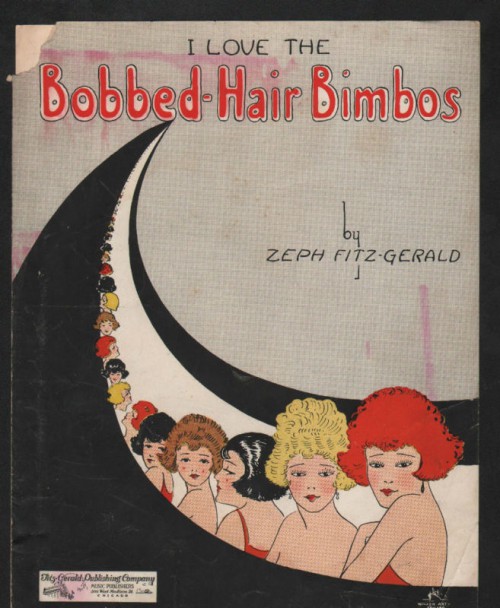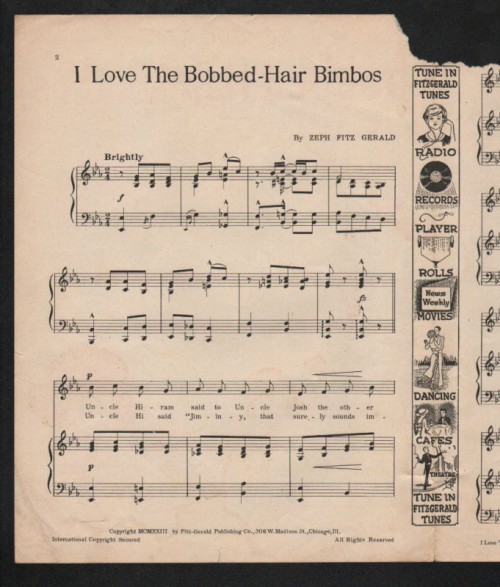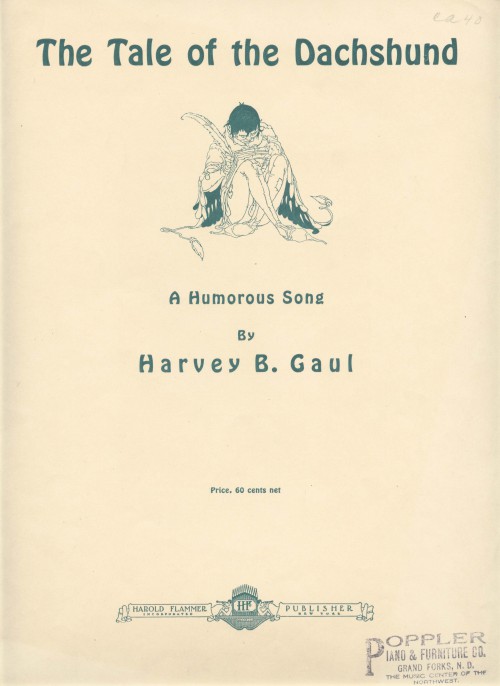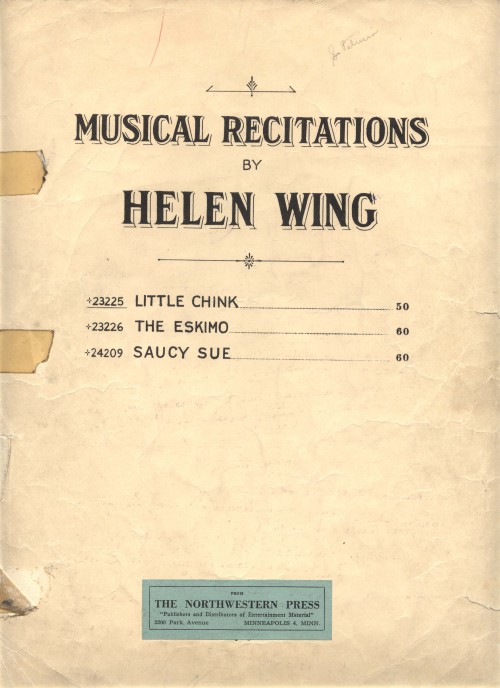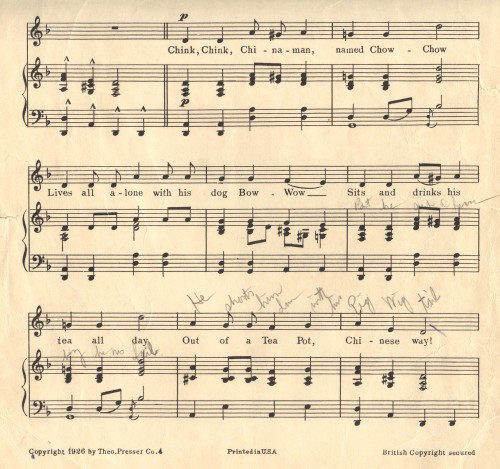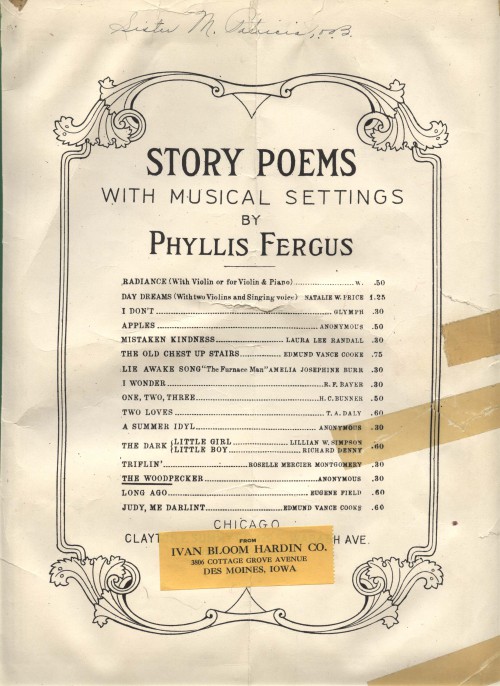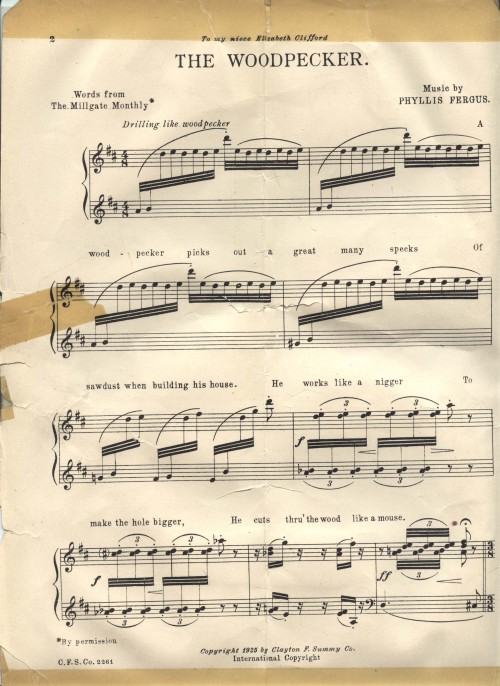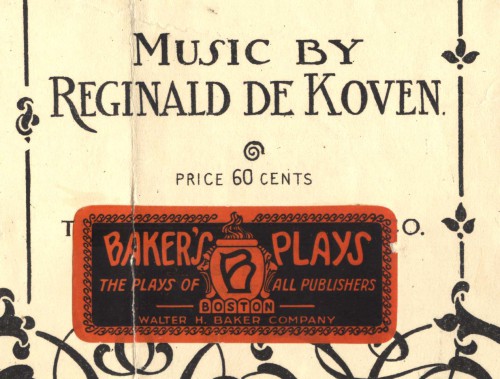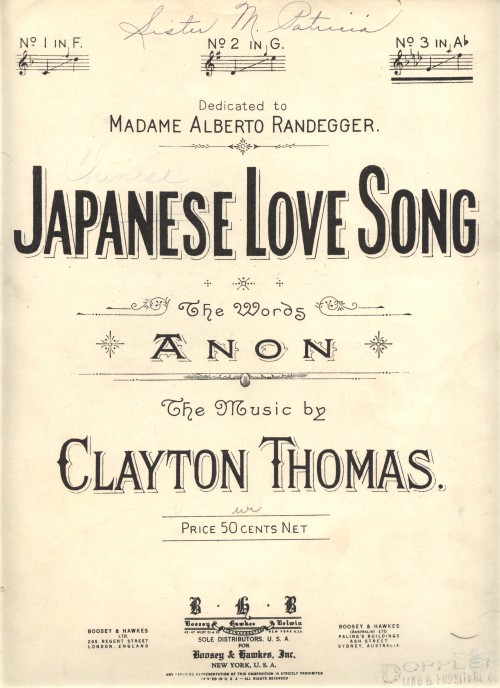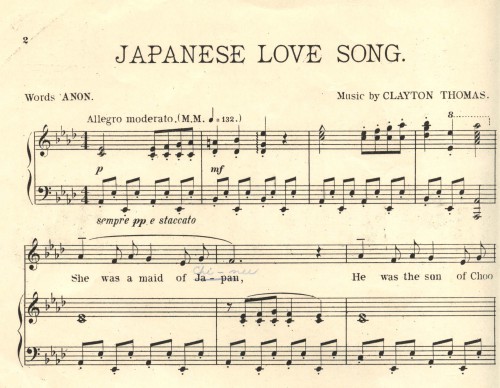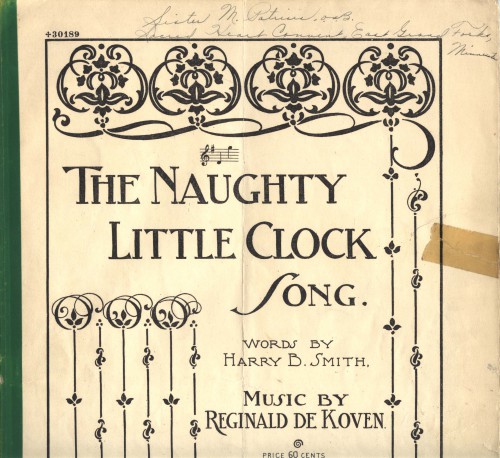More vintage sheet music of the racist variety. (Via.)
Chinese Laundry Blues was George Formby‘s signature tune, and the first of his “Mr Wu” songs.
Now Mr. Woo was a laundry man
In a shop with an old green door
He’d iron all day, your linen away
He really makes me sore
He lost his heart to a Chinese girl
And his laundry’s all gone wrong
All day he’ll flirt and starch your shirt
And that’s why I’m singing this songOh! Mr. Woo, what shall I do
I’m feeling kind of Limehouse Chinese laundry blue
This funny feeling keeps round me ceiling
Oh won’t you throw your sweetheart over, do.
My best silk shawl, now it won’t fit my little brother
And my new Sunday shirt has got a perforated rudder
Mr. Woo, what shall I do
I’m feeling kind of Limehouse Chinese laundry blueNow Mr. Woo, he’s got a naughty eye that flickers
You ought to see it wobble when he’s ironing ladies blouses
Mr. Woo, what shall I do
I’m feeling kind of Limehouse Chinese laundry blue.Now Mr. Woo, he’s got a laundry kind of tricky,
He starched my shirts and collars
But he never touched me waistcoat
Mr. Woo, what shall I do
I’m feeling kind of Limehouse Chinese laundry blue(Instrumental Interlude)
Mr. Woo, what shall I do
I’m feeling kind of Limehouse Chinese laundry blue
Here’s George Formby singing the song, performing on stage for the last time on The Friday Show.
